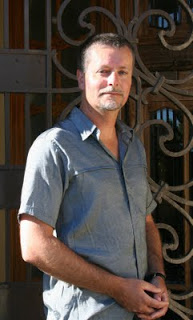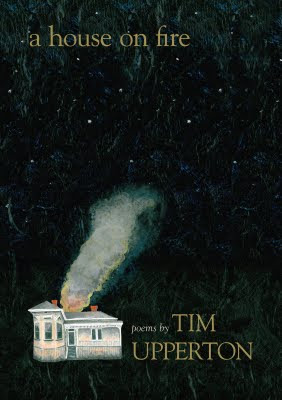I kept track of my 2009 reading using LibraryThing. It turns out I read a book a week in 2009 – excluding the many books I consulted as part of research for my novel, and a few I read for work. With rough divisions by genre, they were:
1. Essential Dykes to Watch Out For by Alison Bechdel (cartoons)
2. The White Road and Other Stories by Tania Hershman (short stories)
3. The Uncommon Reader by Alan Bennett (novella)
4. The Bride of Science: Romance, Reason and Byron’s Daughter by Benjamin Woolley (nonfiction-biography)
5. From Elfland to Poughkeepsie by Ursula K. Le Guin (criticism)
6. A Good Walk Spoiled by J. M. Gregson (novel-detective)
7. Swings and Roundabouts : poems on parenthood, edited by Emma Neale (poetry anthology)
8. Believers to the Bright Coast by Vincent O’Sullivan (novel-literary)
9. Calvin and Hobbes: Sunday Pages by Bill Watterson (cartoons)
10. To Kill a Mockingbird by Harper Lee (novel)
11. The Transition Handbook: From Oil Dependency to Local Resilience, by Rob Hopkins (nonfiction)
12. Improbable Eden: The Dry Valleys of Antarctica by Bill Green (essays) and Craig Potton (photographs) (nonfiction)
13. The Six Pack Three: Winning Writing from New Zealand Book Month (fiction/poetry anthology)
14. Speaking in Tongues by L. E. Scott (poetry)
15. Thornspell by Helen Lowe (novel-fantasy)
16. Love All by Elizabeth Jane Howard (novel-romance/historical)
17. Father India: How Encounters with an Ancient Culture Transformed the Modern West by Jeffery Paine (nonfiction-history)
18. George Gordon, Lord Byron: selected poems (poetry)
19. The Discovery of India (Abridged Edition) by Jawaharlal Nehru (nonfiction-history)
20. In a Fishbone Church by Catherine Chidgey (novel-literary)
21. Cretaceous Dawn by Lisa M. Graziano and Michael S.A. Graziano (novel-SF)
22. The Lakes of Mars by Chris Orsman (poetry)
23. Winter Study by Nevada Barr (novel-thriller)
24. Suite Francaise by Irene Nemirovsky (novel-literary)
25. Time of Your Life (Buffy the Vampire Slayer, Season 8, Vol. 4) by Joss Whedon (graphic novel)
26. India After Gandhi by Ramachandra Guha (nonfiction-history)
27. A Dream In Polar Fog by Yuri Rytkheu (novel-literary)
28. The Sword in the Stone by T H White (novel-fantasy)
29. Tom by Mark Pirie (verse novel)
30. Banana by Renee Liang (poetry)
31. Nearest & Dearest by Mary Cresswell (poetry)
32. The Carhullan Army by Sarah Hall (novel-SF)
33. The Summer King by Joanna Preston (poetry)
34. made for weather by Kay McKenzie Cooke (poetry)
35. The Law of Love by Laura Esquivel (novel-magic realism)
36. Netherland by Joseph O’Neill (novel-literary)
37. The Turn of the Screw by Henry James (novella-ghost/horror)
38. Letters from the asylum by John Knight (poetry)
39. The Secret History of Moscow by Ekaterina Sedia (novel-fantasy)
40. A House on Fire by Tim Upperton (poetry)
41. The People’s Act of Love by James Meek (novel-historical)
42. Dressing for the Cannibals by Frankie McMillan (poetry)
43. Buffy the Vampire Slayer: Predators and Prey, Season 8, Volume 5, by Joss Whedon, Jane Espenson et al (graphic novel)
44. Aunt Julia and the Scriptwriter by Mario Vargas Llosa (novel-bildungsroman)
45. Watching for Smoke by Helen Heath (poetry chapbook)
46. The Coldest March by Susan Solomon (nonfiction-history/exploration)
47. Curved Horizon by Ruth Dallas (literary autobiography)
48. The Abominable Snow-Women by Dorothy Braxton (nonfiction-exploration)
49. The Last Church by Lee Pletzers (novel-horror)
50. The Year of Henry James by David Lodge (memoir/criticism)
51. Feeding the Dogs by Kay McKenzie Cooke (poetry)
52. Sorry, I’m A Stranger Here Myself by Peter Bland (literary autobiography)
I haven’t kept track of my reading before, so I don’t know how this compares to a typical year’s reading. My sense is that I have read somewhat less fiction and rather more poetry than usual, with the proportion of nonfiction about the same.
I think, overall, it’s the poetry – almost all, this year, New Zealand poetry – that I’ve enjoyed most. I have read some excellent collections; some I have admired for their technical excellence, while others (without lacking in poetic technique) have moved me: often, these are collections that have featured poems about places or situations I have been to our lived through.
I was highly impressed by the technical accomplishment of Joanna Preston’s The Summer King, Chris Orsman’s The Lakes of Mars, and Tim Upperton’s A House On Fire, yet despite this, it was Kay McKenzie Cooke’s made for weather and Feeding the Dogs, Helen Heath’s chapbook Watching For Smoke, and Renee Liang’s chapbook Banana that made the most impact on me – together with Emma Neale’s excellent anthology of poems about parenting, Swings and Roundabouts. I also had a lot of fun with Mark Pirie’s verse novel Tom.
In fiction, five novels stood out for me. Irene Nemirovsky’s Suite Francaise was the best novel I read this year, by a short head from Joseph O’Neill’s Netherland, which was wonderful right up to a somewhat underwhelming ending, and Helen Lowe’s Thornspell, an excellent fantasy for older children and younger young adults (I think this may be what is called “MG” rather than “YA” fiction). I also very much enjoyed A Dream In Polar Fog by Yuri Rytkheu, and (a re-read after many years) To Kill A Mockingbird by Harper Lee. Tania Hershman’s collection The White Road and Other Stories includes many fine short – and short-short – stories.
My resolution to read more New Zealand fiction didn’t get very far this year. I was underwhelmed by Catherine Chidgey’s In a Fishbone Church and Vincent O’Sullivan’s Believers to the Bright Coast, both of which, in my view, have the fault common in New Zealand fiction of sacrificing story for style. I think my favourite New Zealand fiction this year was David Geary’s entertaining story “Gary Manawatu (1964–2008): Death of a Fence-Post-Modernist”, included in The Six Pack Three.
Other disappointments included Henry James’s The Turn of the Screw and T H White’s The Sword in the Stone, neither of which, for me, lived up to their reputations.
I read some fine nonfiction this year, but the stand-out was Ramachandra Guha’s superb history India After Gandhi, with an honourable mention going to Improbable Eden: The Dry Valleys of Antarctica, a superbly illustrated book of essays (or superbly essayed book of illustrations).
Finally, neither volume of Season 8 of Buffy the Vampire Slayer (a continuation of the TV series in graphic novel form) that I read this year were up to the standard of their predecessors in this series, but Buffy seasons often have a sag in the middle, so I’m going to stick with the series to see how it ends up. Therefore, last as it was first, my final highlight of the year was Alison Bechdel’s Essential Dykes to Watch Out For, which I was given for Christmas 2008. It contains about 70% of all her Dykes to Watch Out For cartoons, and it’s both great fun and great social commentary.



